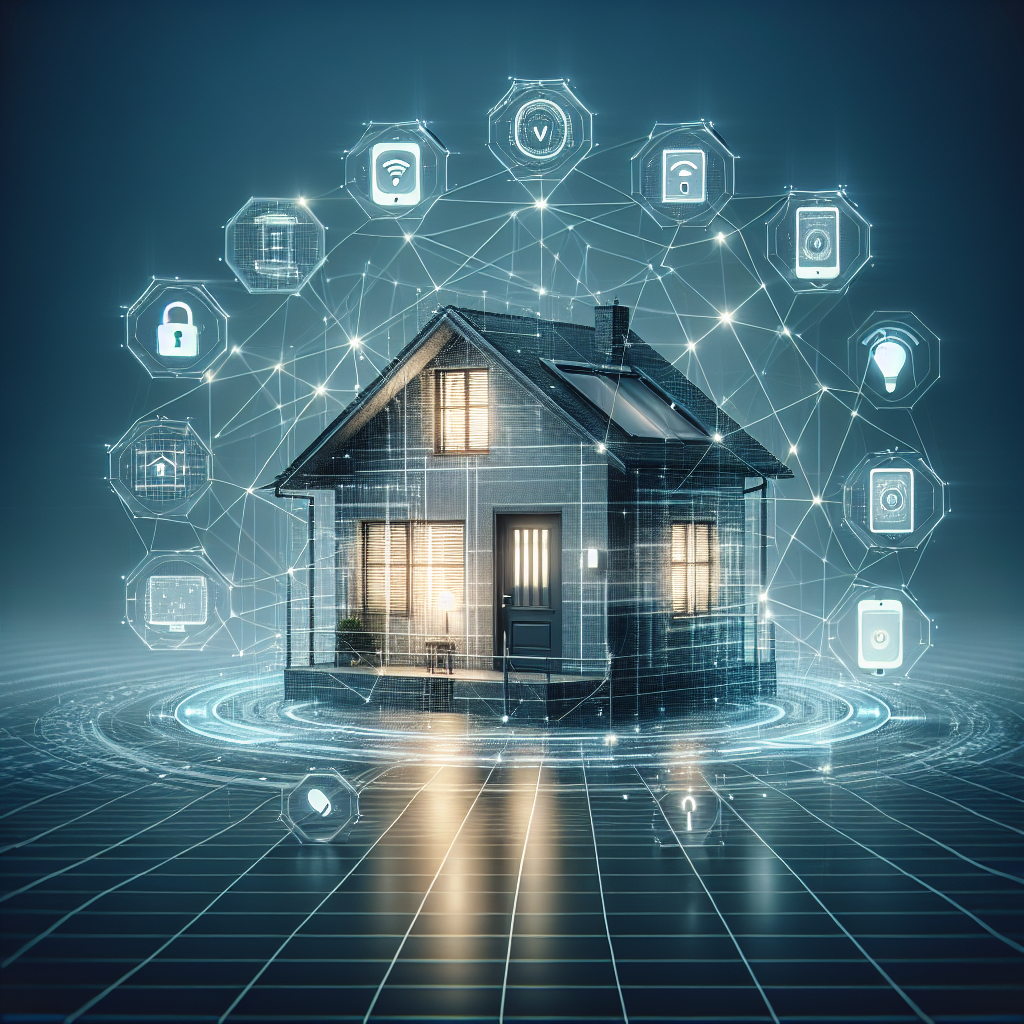As technology continues to advance, the integration of artificial intelligence (AI) in our daily lives has become more prevalent. One area where AI is making a significant impact is in smart homes, where devices and systems are connected and controlled remotely through the internet. While the convenience and efficiency of smart homes are undeniable, there are growing concerns about the potential threats to privacy that come with the use of AI in these environments.
The right to privacy is a fundamental human right that is enshrined in various international conventions and declarations, including the Universal Declaration of Human Rights. It is the right to be left alone, to control one’s personal information, and to have the freedom to make choices about how one’s information is shared and used. In the context of smart homes, the right to privacy becomes even more critical as AI systems collect and analyze vast amounts of data about our daily activities, habits, and preferences.
One of the main concerns about AI in smart homes is the potential for data breaches and unauthorized access to personal information. AI systems rely on data to learn and make decisions, and the more data they have access to, the more accurate and efficient they become. However, this also means that sensitive personal information, such as health data, financial information, and even conversations, can be vulnerable to hacking or misuse.
Another concern is the lack of transparency and control over how AI systems collect, use, and share our data. Many smart home devices come with pre-installed AI algorithms that continuously monitor and analyze our behavior without our knowledge or consent. This lack of transparency raises questions about who has access to our data, how it is being used, and whether we have the right to opt-out or delete our data from these systems.
Furthermore, there is a risk of discrimination and bias in AI systems used in smart homes. AI algorithms are trained on large datasets that may contain biases and assumptions that can lead to discriminatory outcomes. For example, AI systems used to screen job applicants or assess creditworthiness may inadvertently discriminate against certain groups based on race, gender, or other factors. This raises concerns about fairness, accountability, and the potential for AI systems to perpetuate existing inequalities in society.
To address these concerns and protect the right to privacy in smart homes, there are several steps that can be taken:
1. Transparency and consent: Companies that develop AI systems for smart homes should be transparent about how data is collected, used, and shared. Users should be informed about the types of data being collected, the purposes for which it is being used, and the parties with whom it is being shared. Users should also have the right to give informed consent before their data is collected and used.
2. Data security: Companies should implement robust security measures to protect personal data from unauthorized access, hacking, or misuse. This includes encryption, authentication, access controls, and regular security audits to identify and address vulnerabilities in AI systems.
3. Data minimization: Companies should only collect and retain the data that is necessary for the functioning of AI systems in smart homes. They should avoid collecting unnecessary or sensitive personal information that could pose a risk to privacy and security.
4. Accountability and oversight: Companies should establish clear mechanisms for accountability and oversight of AI systems in smart homes. This includes appointing data protection officers, conducting privacy impact assessments, and providing avenues for users to report privacy violations or file complaints.
5. Fairness and non-discrimination: Companies should ensure that AI systems used in smart homes are fair, transparent, and non-discriminatory. This includes testing AI algorithms for bias, monitoring their performance for discriminatory outcomes, and providing remedies for individuals who have been adversely affected by AI decisions.
In conclusion, the integration of AI in smart homes offers numerous benefits in terms of convenience, efficiency, and comfort. However, it also raises significant concerns about the right to privacy and the potential for data breaches, lack of transparency, discrimination, and bias. To protect the right to privacy in smart homes, companies, policymakers, and regulators must work together to establish clear rules, guidelines, and safeguards that prioritize user consent, data security, transparency, accountability, and fairness in the development and deployment of AI systems.
—
FAQs:
Q: Can AI systems in smart homes listen to my conversations?
A: Some smart home devices, such as voice assistants, may listen to your conversations to respond to voice commands. However, companies should clearly disclose what data is being collected and how it is being used to ensure transparency and user consent.
Q: How can I protect my privacy in a smart home?
A: You can protect your privacy in a smart home by setting strong passwords, updating your devices regularly, disabling unnecessary features, limiting data sharing, and being cautious about the information you share with AI systems.
Q: Are AI systems in smart homes secure?
A: Companies should implement robust security measures to protect AI systems in smart homes from data breaches and unauthorized access. Users can enhance security by using secure networks, updating software, and monitoring for suspicious activities.
Q: What should I do if I suspect a privacy violation in my smart home?
A: If you suspect a privacy violation in your smart home, you should contact the company or manufacturer to report the issue, change your passwords, update your security settings, and consider disconnecting or disabling the device until the issue is resolved.

